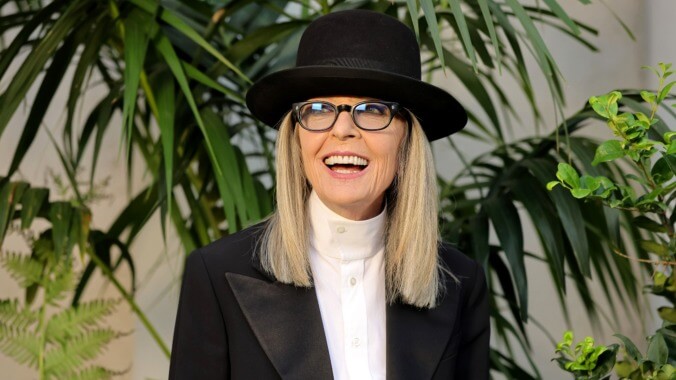Diane Keaton Was an Icon. She Also Defended Woody Allen.
The beloved actress had an illustrious career—and an unwavering loyalty to the director even after he was accused of child sex abuse.
Photo: Getty Images Celebrities
Over the weekend, news of Diane Keaton’s death at 79 rippled through Hollywood. Since then, many of the Oscar-winner’s friends, former collaborators, and fans—from Bette Midler to Leonardo DiCaprio to Kate Hudson to Steve Martin—have shared heartfelt tributes in memory.
“How do we say goodbye? What words can come to mind when your heart is broken? You never liked praise, so humble, but now you can’t tell me to “shut up” honey. There was, and will be, no one like you,” her The First Wives Club co-star, Goldie Hawn wrote on Instagram.
“I think she was just really outspoken and I think it was kind of beautiful the way she saw the world, the way she talked about it and the way that she communicated through it. I don’t know, I felt like she always said what was on her mind which is important and impossible not to rub off on one who’s with her,” Amanda Seyfried told the Associated Press.
“One of the greatest film actors ever. An icon of style, humor and comedy. Brilliant. What a person,” Ben Stiller tweeted.
It’s true. Keaton is, and was, nothing short of an icon—in film, fashion, and in maintaining her individuality. She never married and never regretted it. “Today I was thinking, ‘I’m the only one in my generation of actresses who has been a single woman all her life.’ I’m really glad I didn’t get married,” she said in 2019. “I remember one day in high school, this guy came up to me and said, ‘One day you’re going to make a good wife.’ And I thought, ‘I don’t want to be a wife. No.’” And her sense of humor was unparalleled. “I love Instagram! But how many days can I post pictures of my outfit?” she joked that same year.
-

-

-

-

-

-

-

-

-

-

-

-

-

-

-

-

-

-

-

-

-

-

-

-

-

-

-

-

-

-

-

-

-

-

-

-

-

-

-

-








































